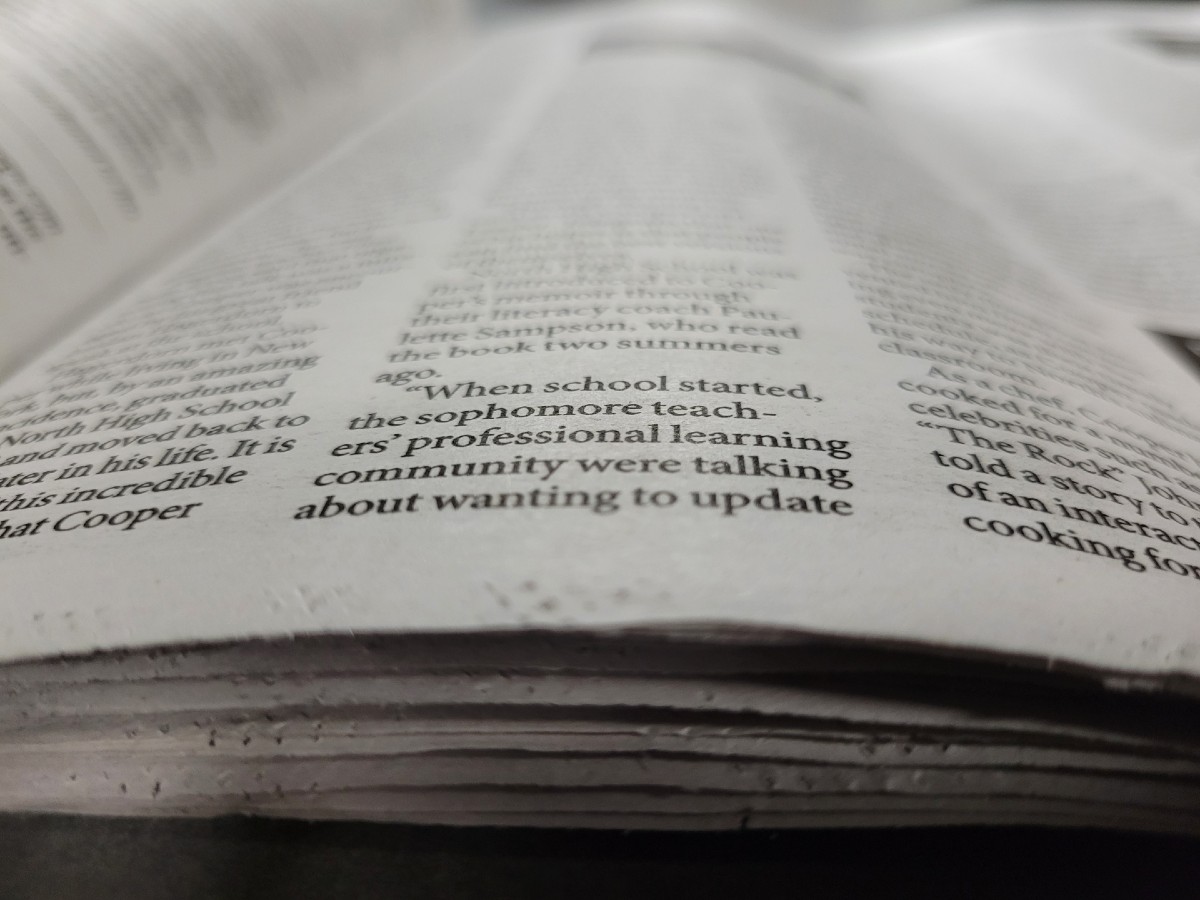Take a few minutes and slow down with me to just read. Ignore the messages at the top of your phone, the pinging of new notifications and new emails. Get rid of the ads flashing in the margins of your screen.
Slow down and read a newspaper — a real printed, ink-smearing, packed-with-tiny-text, headline-popping, front-page-attention-grabbing newspaper.
The printed newspaper is wildly different from the way we get information digitally. Everything you need is within the folded pages. It makes you slow down.
While not ideal for everything, I believe newspapers are in a lot of ways better than consuming news online.
When you open up a newspaper and look at the stories written out on the page, it forces you to focus. There aren’t any moving graphics or pop-up ads to take your attention away from the information. Newspapers allow you to focus on all the details a story includes, without trying to push your attention somewhere else.
The newspaper also makes you take time out of the day to read about the things going on. With digital news, you might only check if you hear about something happening or if a post comes across your feed. Reading a newspaper is an intentional act to inform yourself, and to stay informed.
Taking the time to just sit down and read the news all in one paper is less stressful than getting information from social media posts, and most of the time the information is more comprehensive than a short text online.
If this story sounds like the ramblings of an old man complaining about the internet and reminiscing about the “good ol’ days” back when the news was on paper, you might be right.
But as a member of Gen Z, I can get very fatigued from the constant, ever-flowing barrage of information crashing into me every time I open my phone. Slowing down and absorbing the news at my own pace is a refreshing change of pace.
I know newspapers can’t do everything, and there are quite a few limitations because of the nature of the format.
Breaking news and developing stories, for example, happen too fast and change too often that it makes more sense to get information online, where information can be shared instantaneously.
Another limitation: the longform feature story. If you’re like me, you enjoy a deeply in-depth long story about a person’s life every once in a while. These types of stories aren’t very common in printed papers because of their length. Online formats are great for feature stories.
The way we consume information has changed a lot and in many ways, news is more accessible now than it ever has been. Information comes at us fast and it’s presented in new formats, using video and media to bring stories to life.
But there will always be something about slowing down and reading and focusing only on the words on the page. Escape the internet for a few minutes and pick up a printed newspaper.
Mohr can be reached at [email protected].









Bharati Dasgupta • Nov 10, 2023 at 11:21 pm
Enjoyed slowing down to read this, end to end. Agree to most!